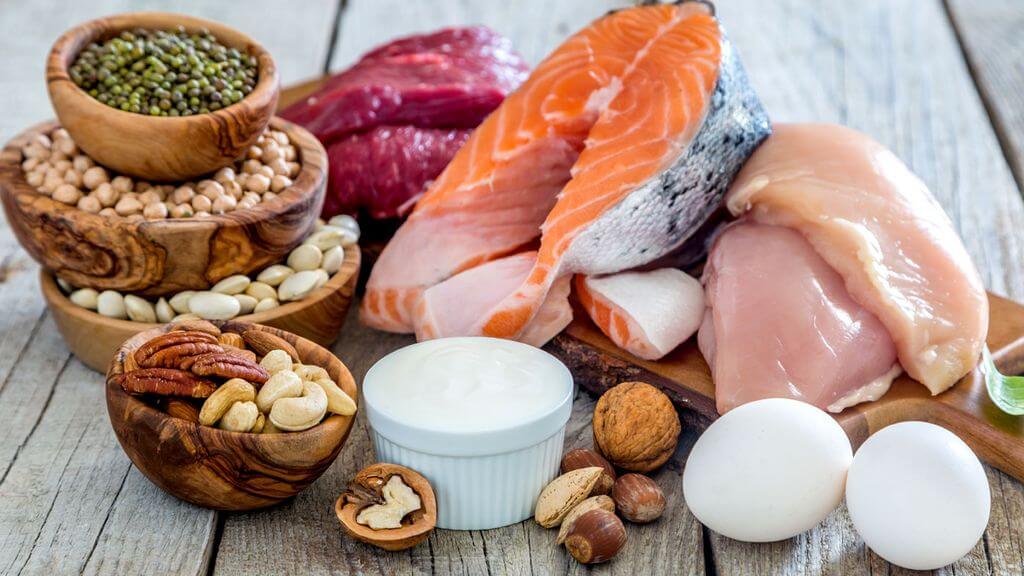Protein can keep you full and aid in weight loss. However, consuming the proper amount and kind of protein is critical to get health advantages. The main building blocks of the human body are considered to be proteins. As a result, muscle wear and tear, healing, and strength are all facilitated by protein rich food.
What amount of protein do you require?
A healthy adult needs around 0.8 to 1 gram per kg of body weight, according to the Indian Council of Medical Research’s most recent 2020 criteria. In India, some people either consume too much protein or think they don’t get enough, while others hardly consume the recommended 0–6 grams per kilogram of body weight. On the other hand, proteins do not operate on the maxim “more the amount, the better it is.” Therefore, eating enough to satisfy one’s body’s demands for development and maintenance is vital.
Top 7 protein-rich foods which are perfect for your diet
Cottage cheese
Cottage cheese, the topmost protein rich food, has 163 calories and 28 grams of protein in 1 cup. 13 grams of proteins may be found in a half cup containing cottage cheese. It is a wonderful, affordable, and nutritious food product. Cottage cheese provides calcium for healthy bones as well as protein for muscles. It makes a delicious entrée when combined with fruit or veggies. There is a lot of protein in other kinds of cheese as well. It’s best consumed in its low-fat form. In addition, adding cottage cheese to a fruit or vegetable salad may help you lose weight because it is just as filling as eggs. You may even enjoy it by yourself.
Greek yogurt
It is also a good protein rich food to consume Greek yoghurt. In order to get enough protein in your diet, vegetarians should consume Greek yoghurt every day. Calcium, selenium, vitamin B12, vitamin A, and zinc are among the minerals found in yoghurt.
Nuts
Peanuts and peanut butter, almonds or almond powder, Brazil nuts, walnuts, pistachios, pine nuts, Brazil nuts, cashews, and hazelnuts are some of the most often consumed nuts. These foods are high in protein, and flax, chia, and sesame seeds are also good protein sources for vegan diets.
Peas
This winter classic is one of the highest-protein vegetables. You can also get protein and fiber from frozen green peas, so stock up on some. If you can feel the frozen peas in the bag, they are OK to go; if not, they have been thawed and refrozen into a big chunk. To increase your protein intake, the special Indian delicacy, try Matar Paneer.
Egg Whites
1 large egg white offers 3.6 grams of protein and 16 calories (satisfies 7% of your daily protein needs). Eggs, and egg whites specifically, are an excellent source of protein. In addition to being high in protein, egg whites are also low in cholesterol. Egg whites are incredibly low in fat, making them the perfect choice for a wholesome and balanced breakfast. One cup, which is full of egg whites, contains 26 grams of protein in it. This will also supply you with energy and amino acids. Adults should consume one egg each day. Furthermore, egg white protein supplementation has been shown in trials to boost resistance and muscular strength, particularly in females.
Milk
A great source of high-quality protein and vitamins, milk is abundant in vitamins and minerals. Regularly drinking milk is a great method to increase your protein intake. Phosphorus, potassium, Calcium, B vitamins, and vitamin D are just a few of the vitamins and minerals found in milk.
Kidney beans
Kidney beans are high in protein, carbs, and fibre. Traditional Indian food Rajma-Chawal is often served with steamed or cooked rice. Aside from being excellent, it’s a filling dish that may be served as a curry, salad topper, enchiladas, or hot chilli.
Final Words
Proteins, which make up the majority of your muscles, are essential building blocks. When trying to reduce weight, protein can help you grow muscle mass, maintain muscle mass, and prevent muscle loss. When proteins are consumed, they release essential amino acids. You must have these acids from your diet since your body cannot generate them. Protein is changed into amino acids by your body, which carries out a number of essential processes. Examples include transporting substances throughout the body, promoting muscular development, and increasing metabolism.

